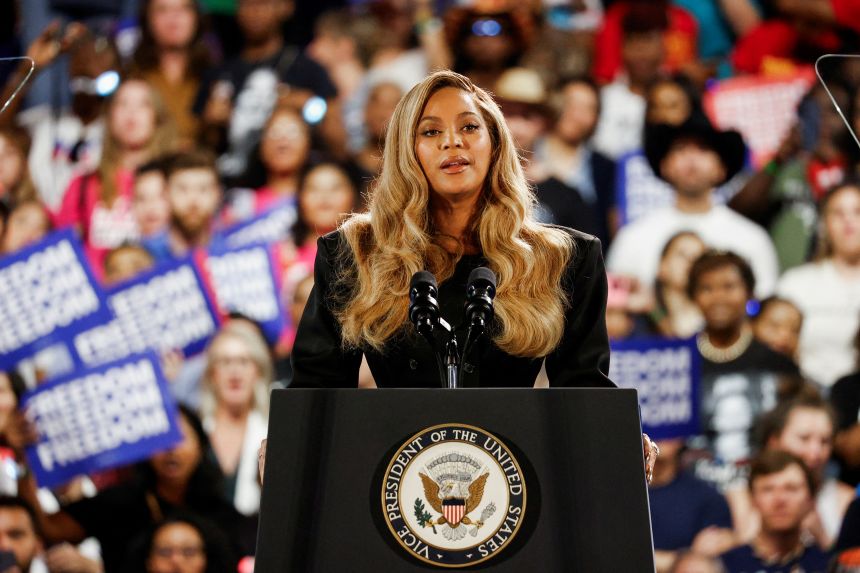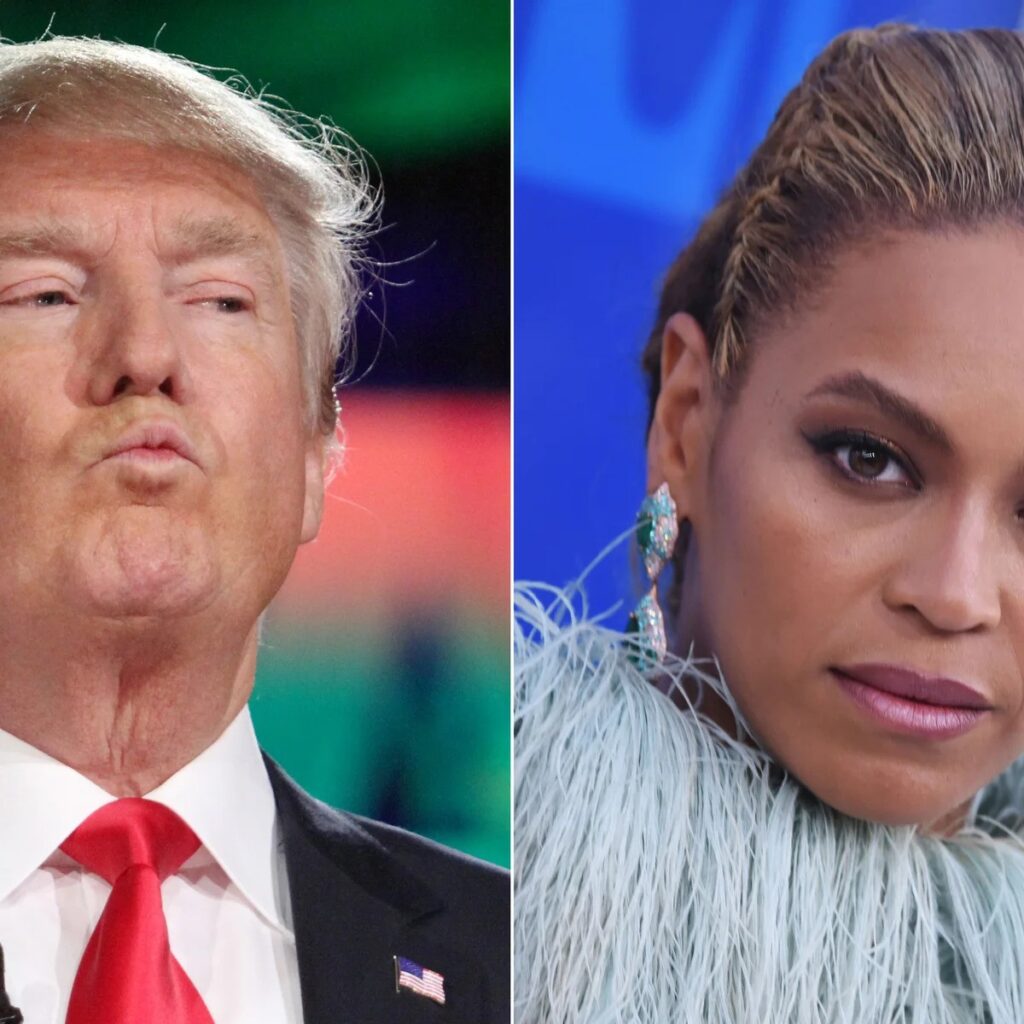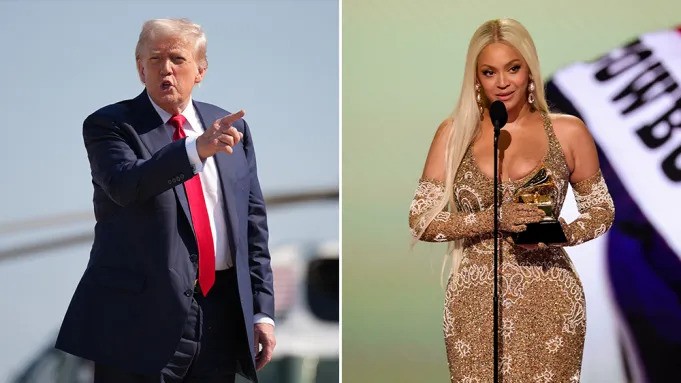Donald Trump is once again making headlines, not for a policy proposal or a campaign rally, but for a social media post targeting none other than global pop superstar Beyoncé. The former president took to Truth Social on July 26 to renew his claim that the singer was paid $11 million to endorse Kamala Harris’ presidential campaign—an allegation that has been widely debunked but remains a key talking point in Trump’s ongoing crusade against what he calls the “celebrity endorsement machine” of the Democratic Party. This is not the first time Trump has pointed fingers at celebrities who have aligned themselves with his political opponents, but his decision to single out Beyoncé yet again is raising eyebrows, especially given the lack of evidence supporting his accusation.
In his post, Trump wrote with characteristic flair, claiming that the Democratic Party paid the Grammy-winning singer a huge sum for her public support of Harris. “I’m looking at the large amount of money owed by the Democrats after the presidential election and the fact that they admit to paying, probably illegally, $11 million dollars to singer Beyoncé for an ENDORSEMENT (she never sang, not one note…),” he declared. He didn’t stop there. He added Oprah Winfrey and civil rights figure Al Sharpton to the list of supposed recipients of illegal campaign funds, suggesting that these individuals had also received money in exchange for political support. “Can you imagine what would happen if politicians started paying for people to endorse them. All hell would break out!” he exclaimed. “Kamala and all of those that received endorsement money BROKE THE LAW. They should all be prosecuted! Thank you for your attention to this matter.”
This isn’t the first time Trump has gone after Beyoncé in recent months. Just two months prior, he posted a similar rant accusing the singer and other celebrities of being financially compensated to promote Harris’ campaign. In May, he even promised a “major investigation” into the Harris campaign’s use of celebrity endorsements, suggesting that it represented some kind of election fraud or unethical behavior. Yet, despite all these bold proclamations, there is still no official record of such payments ever having been made.
As of now, the Federal Election Commission (FEC) has no documentation of an $11 million transaction from Kamala Harris’ campaign to Beyoncé or her representatives. Moreover, there is no specific rule in FEC regulations that prohibits campaigns from paying for endorsements, which makes Trump’s legal outrage appear more symbolic than grounded in fact. According to FEC guidelines, while campaigns are required to disclose all financial expenditures, the idea of paying a celebrity to publicly support a candidate is not, in itself, illegal. It might be controversial. It might be politically unpalatable. But it’s not necessarily a criminal act.
What makes Trump’s claim particularly interesting is that it seems to stem from a rumor that started almost a year ago. In October 2024, Beyoncé made a public appearance at an abortion rights rally in her hometown of Houston, standing in solidarity with Kamala Harris. She also allowed her 2016 track “Freedom” to be used as Harris’ campaign song, further cementing her support. The moment was undeniably impactful—Beyoncé is not known for making political appearances lightly. Her presence generated significant media coverage and helped energize the Democratic base, particularly among younger and more progressive voters.
Not long after the rally, social media users began spreading a rumor that Beyoncé had been paid $10 million for her participation and endorsement. No evidence was ever presented to back this up, but the story gained traction in some right-wing circles. The number has since inexplicably grown to $11 million in Trump’s latest iteration of the story. Still, the Harris campaign flatly denied the allegation at the time, and no financial records ever supported the claim.

Perhaps most convincingly, Beyoncé’s own mother, Tina Knowles, took to Instagram in November 2024 to directly address the story. “This is false information,” she wrote, calling the $10 million claim a “lie.” She even went a step further, stating that Beyoncé had paid for her own travel expenses to the event, including those of her team. “She actually paid for her own flights for her and her team,” Knowles clarified, clearly frustrated by the narrative being spun around her daughter’s involvement.
Despite these denials and the absence of any official documentation, Trump has doubled down. This persistence in the face of fact has become something of a hallmark of his political strategy—sow enough doubt, repeat it enough times, and some of the public will start to believe it. In this case, it seems aimed at discrediting Harris by casting her campaign as fundamentally corrupt and reliant on celebrity influence bought and paid for under the table.
But Trump’s complaints ring hollow to many, especially given his own history with celebrity culture. Long before he became president, Trump was a figure in the entertainment world. He hosted The Apprentice, courted celebrity attention, and frequently rubbed shoulders with Hollywood elite. Even during his presidential campaigns, he happily accepted the support of entertainers like Kid Rock, Scott Baio, Ted Nugent, and others. His campaign rallies often featured performances, endorsements, and shoutouts from right-wing entertainers. In short, Trump’s disdain for celebrity influence seems to apply only when those celebrities don’t align with him.
Moreover, the idea that celebrities have sway over political outcomes isn’t new. Whether it’s Oprah endorsing Barack Obama in 2008 or Taylor Swift urging her fans to vote in 2020, entertainers have long used their platforms to influence public opinion. What’s changed is the tone—these endorsements are now seen by some conservatives as evidence of manipulation or undue influence, rather than free expression. Trump’s latest accusations against Beyoncé appear to stem more from her influence than any actual concern about election finance laws.
For her part, Beyoncé has remained silent in the face of these latest attacks. That’s consistent with her usual approach. She rarely comments directly on political controversies, choosing instead to speak through her work and carefully curated public appearances. Her choice to appear alongside Harris was a bold one, but not out of character. Beyoncé has been politically engaged for years, most notably in her Super Bowl halftime show in 2016, where she paid tribute to the Black Panthers and called attention to police brutality. She and her husband Jay-Z also campaigned for Barack Obama and supported Hillary Clinton in 2016.
Her decision to back Kamala Harris in 2024 shouldn’t have come as a surprise. What may be surprising, however, is the level of vitriol it continues to provoke from Trump and his allies. While celebrity endorsements may not sway every voter, they clearly hold enough symbolic power to send Trump into another round of public outrage.
Political analysts believe that Trump’s tirade is more about rallying his base than actually pursuing legal accountability. Accusations like these tap into a broader narrative that the political system is rigged, that Democrats are beholden to Hollywood, and that elites are conspiring against everyday Americans. “Trump is using this as a way to energize his supporters by portraying Democrats as cheaters who are colluding with celebrities to manipulate voters,” one analyst explained. “It’s less about Beyoncé herself and more about what she represents—liberalism, cultural power, and the ability to mobilize a demographic that Trump struggles with.”
The Harris campaign has chosen not to directly address Trump’s latest post. One anonymous campaign official reiterated past denials, stating, “There’s no truth to the claim. We’ve said that before, and nothing has changed.” It’s a smart move politically, as engaging Trump on his turf—Truth Social—often leads to an escalation of rhetoric rather than a resolution.

As the 2025 election season ramps up, it’s likely that Trump will continue to target celebrities who speak out against him or his policies. Beyoncé, given her stature and influence, makes an obvious target. But if history is any indicator, she won’t be dragged into a back-and-forth. Instead, she’ll do what she’s always done—let her actions, her art, and her quiet power speak louder than any political insult.
What Trump may not fully grasp is that, in attacking someone like Beyoncé, he isn’t just going after a celebrity—he’s going after a symbol. Beyoncé represents empowerment, resilience, and unapologetic Black excellence. Her support carries weight not just because of her fame, but because of what she stands for. That might be what really gets under Trump’s skin. And as the battle for the White House heats up, it’s clear that the culture wars will rage right alongside the political ones. Whether Beyoncé reenters the political conversation or remains focused on her own projects, she has already made an impact—and no amount of bluster from Truth Social is going to change that.



